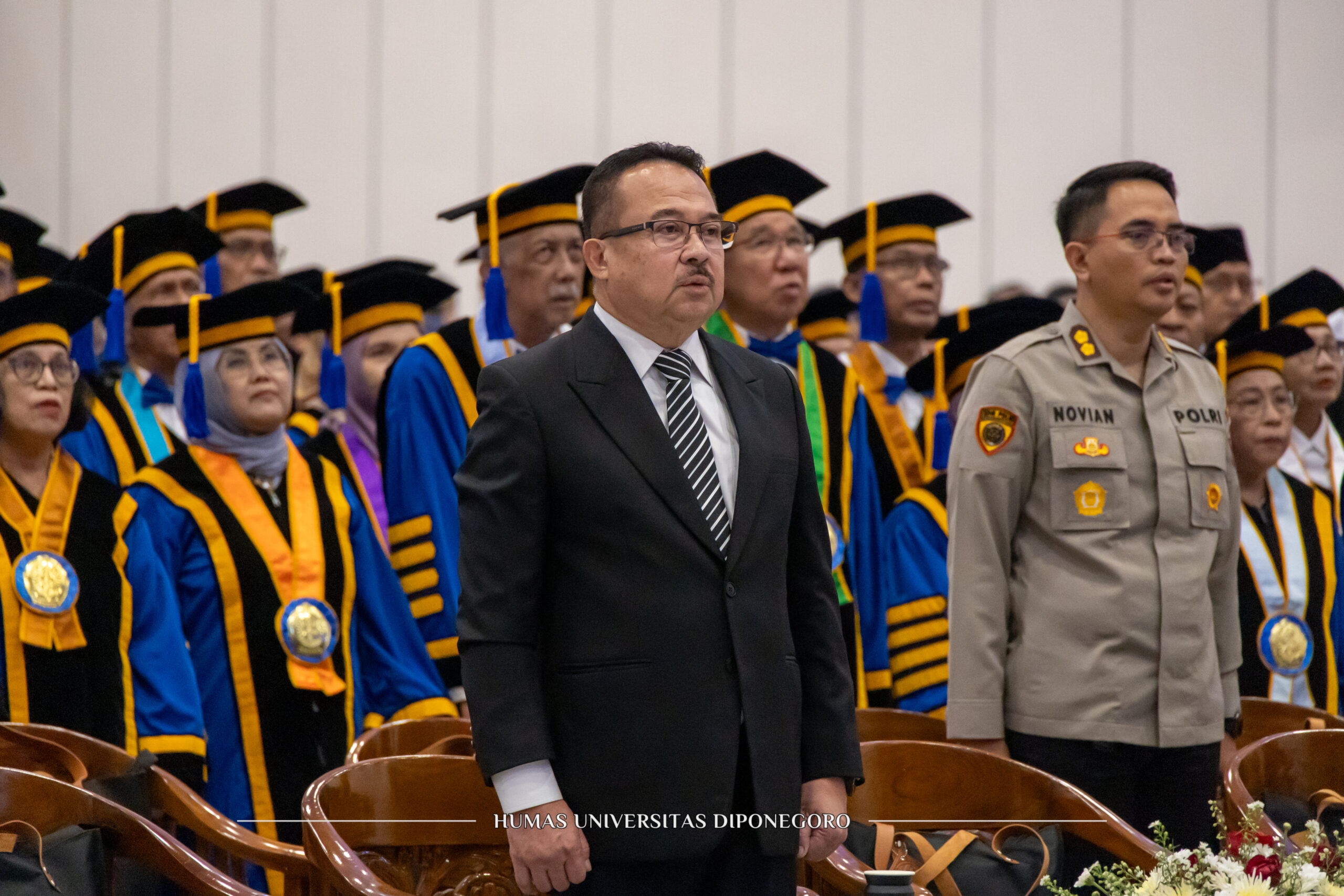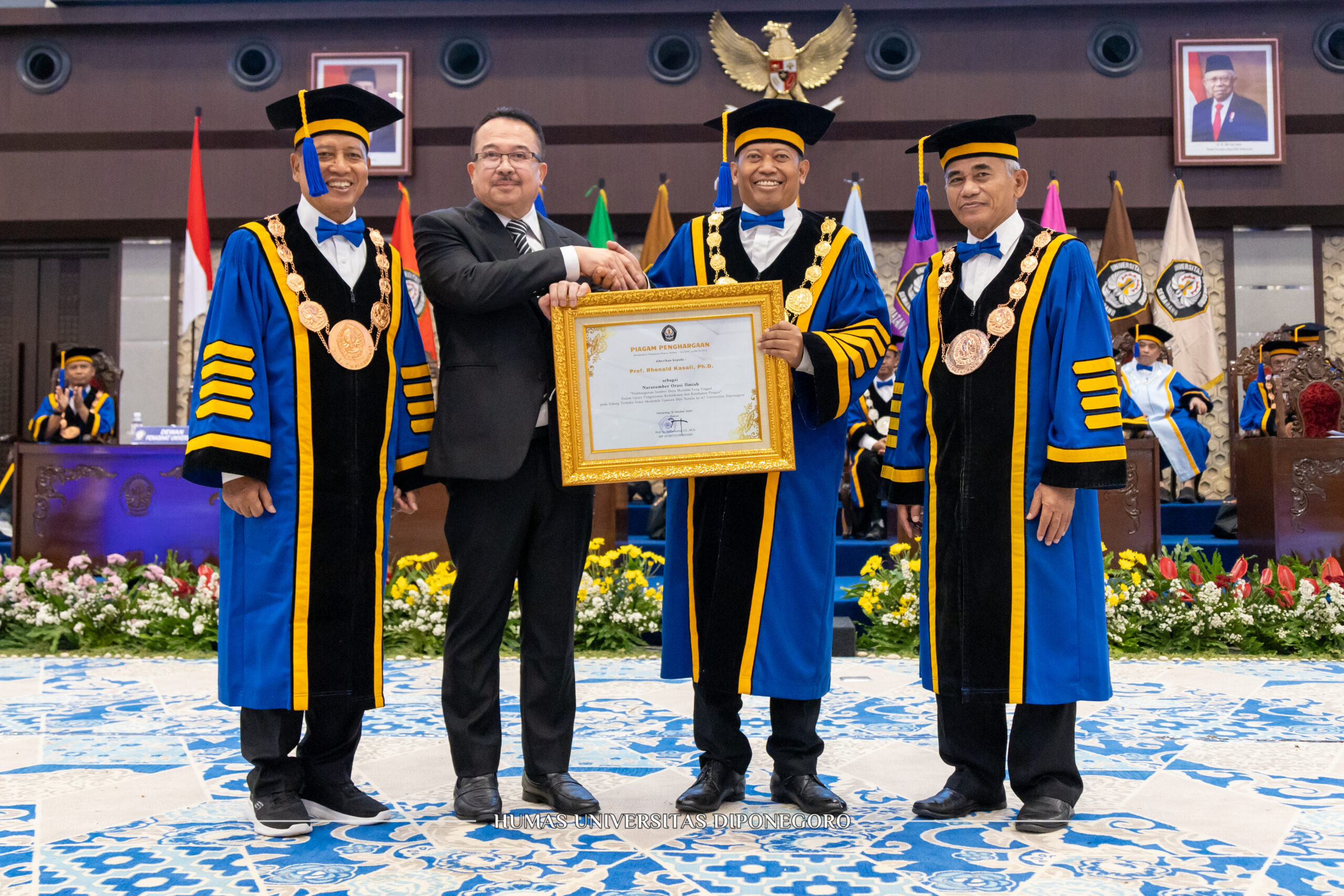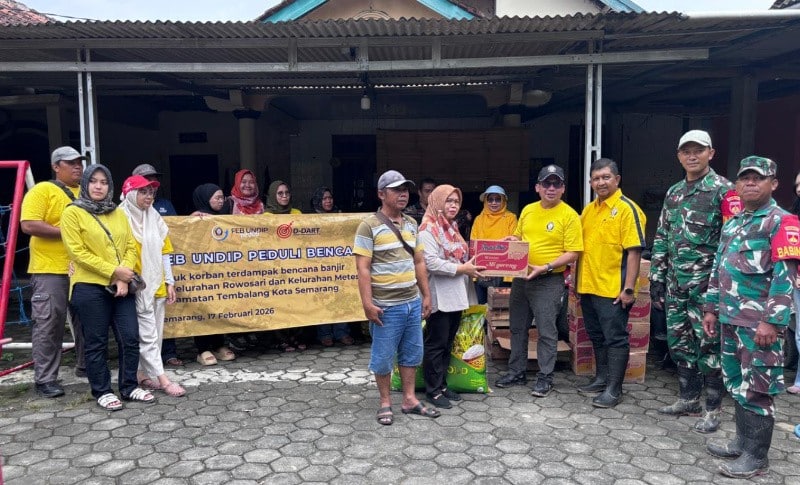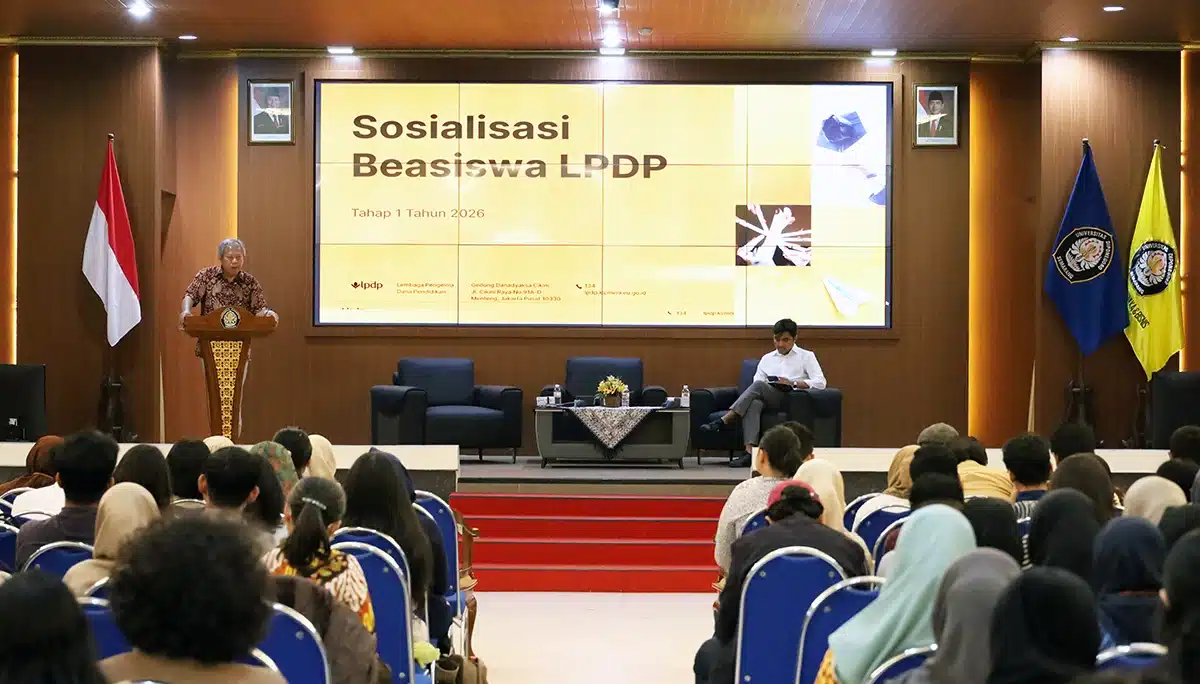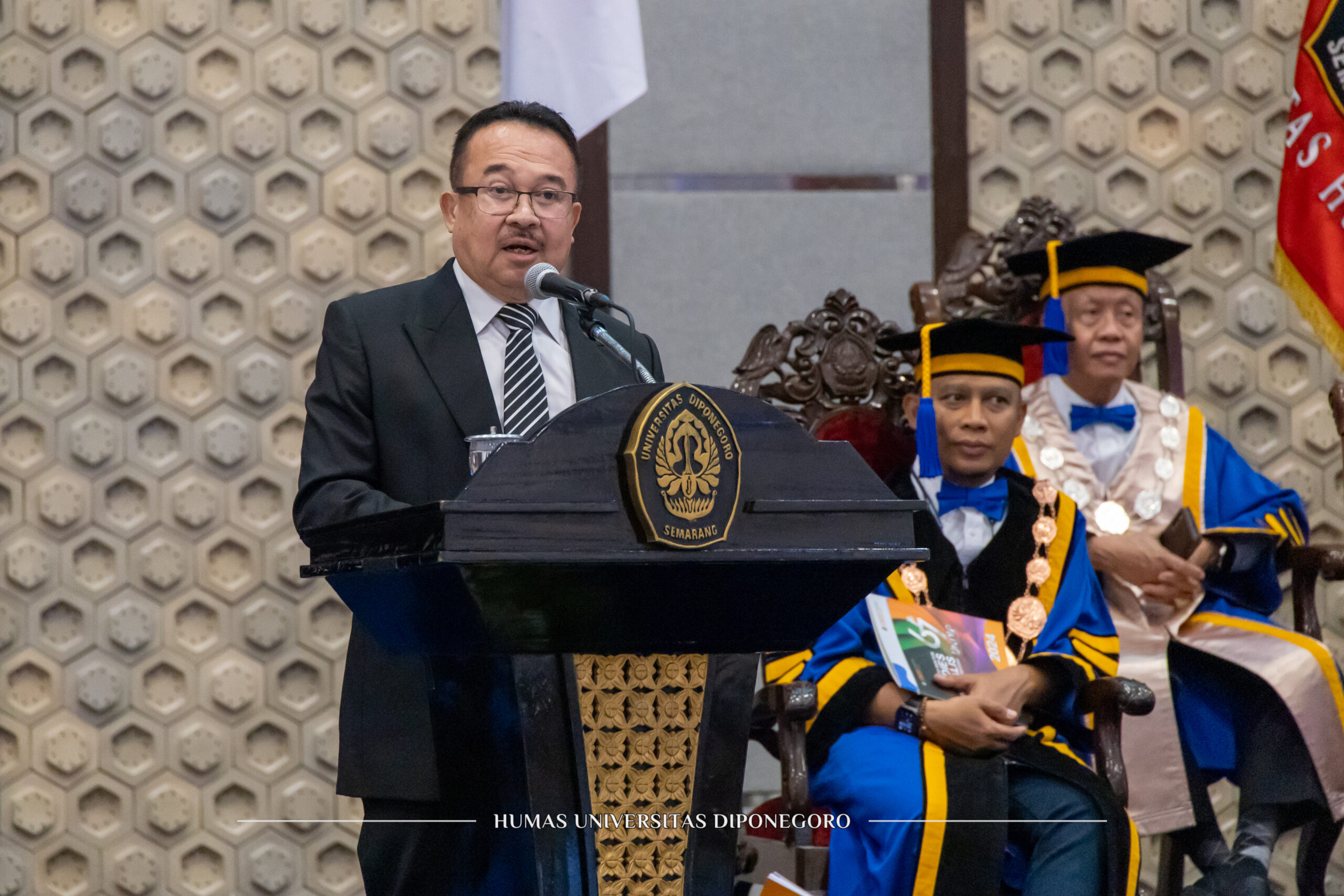SEMARANG – The generation gap, or the divide between the old-fashioned older generation and the algorithm-driven younger generation, presents a challenge for universities in producing top-tier human resources (HR). This gap is apparent when we see many young people proficient in technology but lacking in attitude, while the older generation excels in attitude but lacks specific skills.
This observation was made by Prof. Rhenald Kasali, Ph.D., in his academic address titled “Developing Excellent Human Resources for Poverty Alleviation and Food Security,” presented as part of Universitas Diponegoro’s (UNDIP) 67th Anniversary Ceremony at the Muladi Dome, Tembalang, Semarang. “This is a critical issue that must be understood collectively,” said Rhenald Kasali on Monday (10/15/2024).
He explained that according to data from the Indonesian Central Statistics Agency (BPS), around 9.9 million young people fall into the “not in education, training, or employment” category. This indicates that there is still a youth segment lacking in both skills and attitude, who often spend their time playing online games and engaging in similar activities. In contrast, there are young people who, despite not having received formal training, work independently as entrepreneurs or choose not to pursue employment. Universities must, therefore, play a role in knowledge and skill exchange to produce a new, excellent generation.
“Lecturers can teach students about work ethics, discipline, loyalty, and leadership. At the same time, they can learn about technology from the students. Young people should also learn discipline from previous generations,” said Prof. Rhenald Kasali, who is a professor of management in the Faculty of Economics and Business at the Universitas Indonesia (FEB UI).
Prof. Kasali believes that combining the strengths of the older and newer generations can produce skilled, highly productive human resources. However, this is a challenge, as many universities focus solely on knowledge development. He emphasized this as the task of higher education, stating, “We need to shape our students into individuals with a productive work ethic.”
Fostering a productive work environment that encourages innovation is important in the context of poverty alleviation. Today’s young workforce seeks jobs that provide fair compensation and align with their passions.
Indonesia has the world’s second-largest biodiversity after Brazil. As such, it possesses abundant sources of well-being, including fresh food, fresh air, and fresh water.
“This is a point of pride, but if we fail to pursue sustainable economic development, we risk losing our biodiversity. For example, Karawang was once a rice granary in West Java, but now it has become an industrial area. Likewise, we see snakes in the fields being killed, even though they help control the rat population, which is a pest,” he explained.
The issue of food security is critical, as Earth, which ideally could sustain 3 billion people, is now home to 8.3 billion. With 70% of Earth covered by oceans, not all land is habitable due to deserts, forests, and protected areas. “These are the obstacles we face, and we see a decline in agricultural practices. Just two days ago, I met a coffee farmer on my way from Bandung to Jakarta with an 18-hectare coffee plantation. When I asked who works there, he said mostly older individuals,” said the academic known for his writings.
Kasali expressed concern over the coffee plantations he recently visited, as the demand for Indonesian coffee remains high, both domestically and internationally. Unfortunately, the agricultural sector is struggling to attract human resources, with many young people from rural areas preferring jobs outside of agriculture. In Bali, for instance, many young people choose to work on cruise ships instead of farming, which affects Bali’s food security. Fortunately, Banyuwangi, near Bali, produces a surplus of chilies, which can be sent to Bali.
The shortage of skilled young human resources is a global challenge. “Many countries face this talent shortage, with businesses struggling to find employees with the necessary skills. As a result, there’s a significant unmet demand for HR,” he noted.
These issues are global, not just Indonesian. Thus, preparing excellent human resources to address poverty alleviation and build food security is everyone’s responsibility. “Believe me, humans are problem-solving beings, using tools and seeking solutions through innovation. Therefore, it’s our duty in higher education to teach students to think critically, not just memorize. It’s about fostering the ability to think, explore, and seek new ideas,” Prof. Rhenald concluded his address. (***)
